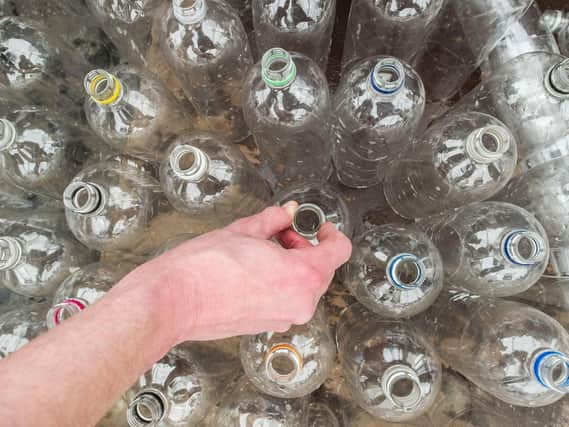Shop on Green Street to help climate change fight - Richard Pennycook


We all sort of know that we can’t keep consuming the earth’s resources in the way that we have been. Different people have different motivations for thinking about this – whether it be the effects of climate change, extinction threats to our wildlife, animal welfare concerns or a host of other factors.
There is a common, golden thread, that can link all of these together into concerted action for the good of the planet – sustainability. If we consume less, and consume more wisely, the impact can only be beneficial.
Advertisement
Hide AdAdvertisement
Hide AdLet’s take a simple example – drinking water. We’re lucky in the UK that over 99.9 per cent of the population has access, through the tap, to safe drinking water. A jug of water, chilled in the fridge, is every bit as delicious as water from a plastic bottle.
The carbon footprint of bottled water varies enormously (particularly if you like fancy water shipped-in from Fiji!) but a safe estimate seems to be that it is at least 50 times more than tap water. And yet we consume 2.9 billion litres of bottled water per year in this country. The environmental cost is high – the diesel emissions from trucking heavy pallets of water around the country, the plastic manufacturing for the bottles and the land-fill or recycling of the waste. The alternative is to fill a reusable drinking bottle from the tap. It is probably the simplest and most sustainable switch anyone could make – but I would be a hypocrite to suggest I haven’t bought a plastic water bottle in the past year. Changing behaviour is tough.
The retail industry, where I’ve spent my career, has an important role to play in reshaping our economy. Pretty much all consumer consumption involves a retailer selling something to a customer. Retailers are very good at understanding what consumers want, and finding or developing products to fill those needs. As consumers think more and more about the impact of what they are doing on the planet, so smart retailers who offer them ethical, sustainable, products will thrive. Their customers also want to know that the retailer behaves responsibly with things like energy use, packaging, or colleague welfare. That said, we need to make it easy for our customers to choose sustainable products.
At the Retail Sector Council, which I co-chair, we have a busy agenda looking at ways to improve the sustainability of the goods that we sell and the way that we operate. We are working closely with Government to identify areas where co-operation or better regulation may play a part.
Advertisement
Hide AdAdvertisement
Hide AdLarge retailers can afford to have teams in place looking at these issues, and have the clout with suppliers to improve the sustainability of products, packaging and the supply chain. You may have noticed, for example, that there are fewer black plastic trays being used in food packaging these days, after it was revealed that the automated equipment in recycling plants couldn’t detect that black items were plastics capable of being recycled.
For small, independent, retailers, it is more challenging to keep on top of the sustainability agenda. Anyone running a small business knows how demanding it is just to keep on top of day-to-day responsibilities, and they don’t usually have the staff available to commit to new projects. That’s where Green Street comes in – a new initiative sponsored by the Retail Sector
Council to provide tips and guidance to small retailers on how they can easily and affordably improve their sustainability. Some of the actions will display to customers that they are responsible retailers (like offering a water fountain to allow customers to refill those water bottles) whilst others are just good business sense (like switching to LED lighting throughout their stores to save up to 50 per cent on their lighting bills).
The development of Green Street has been led by my colleague on the Council, Victoria Robertshaw. Victoria co-founded the highly successful Keelham Farm Shop, near Bradford, and knows all about the challenges of being an independent retailer.
Advertisement
Hide AdAdvertisement
Hide AdWe hope Green Street provides an inspiration for many small businesses. In turn this will help our independent retail sector to thrive, and be part of the renewal of our high streets that will be badly needed as we recover from Covid. Readers will soon see the Green Street logo appearing on shop doors and they will know that their shopkeeper is working hard to make retailing sustainable.
Richard Pennycook is co-chairman of the Retail Sector Council.